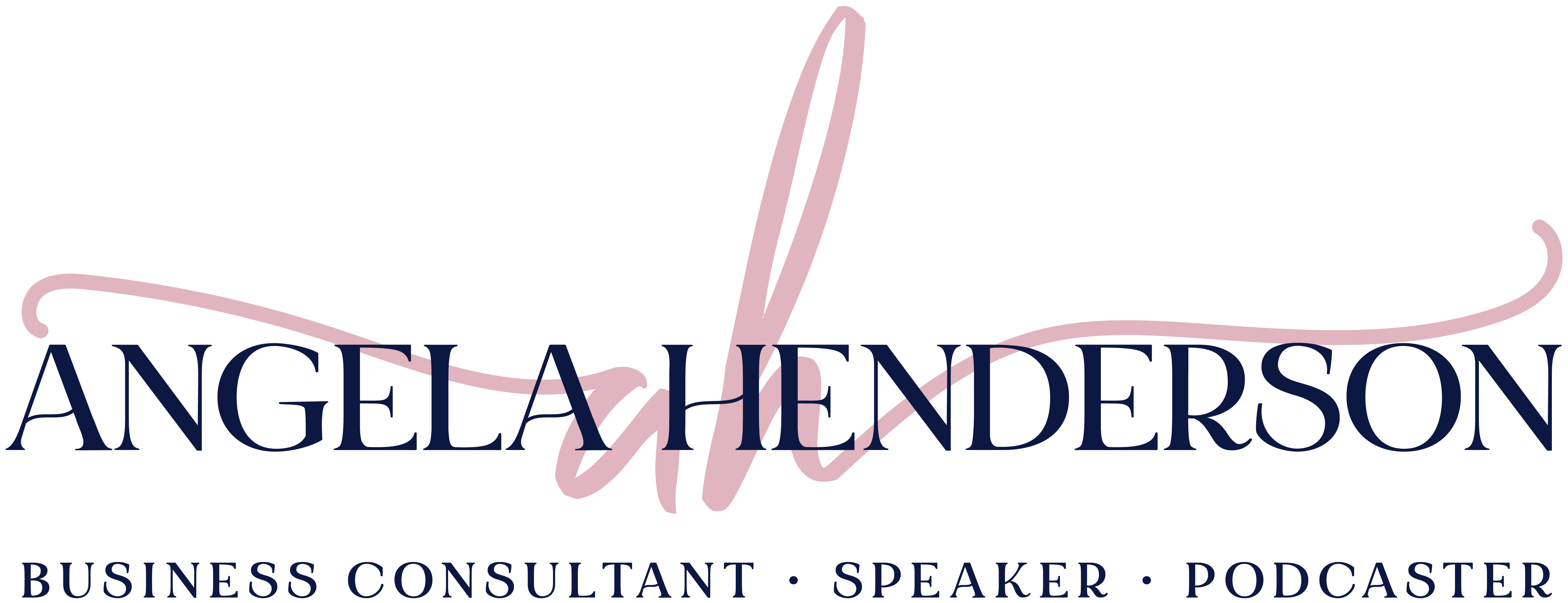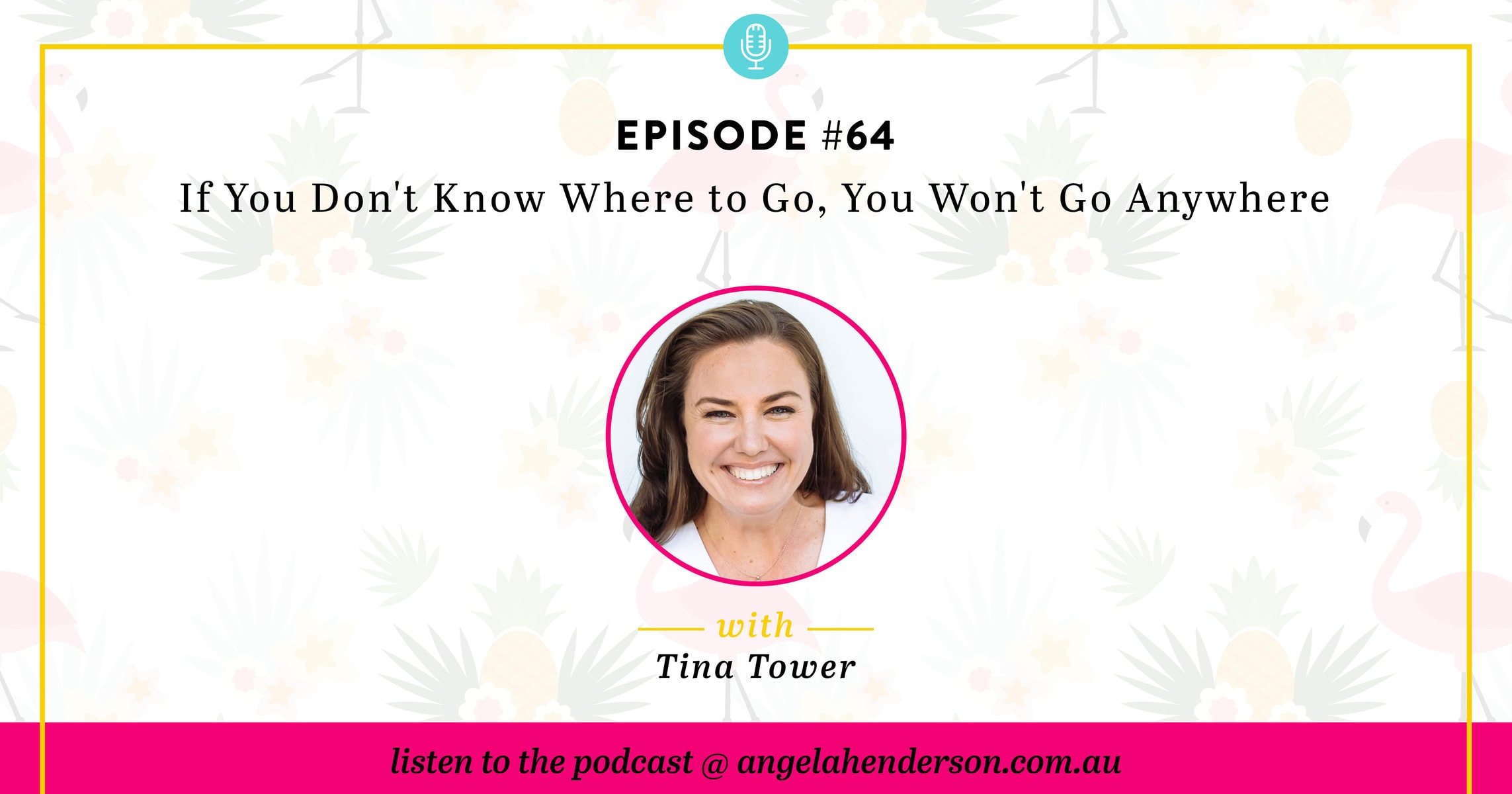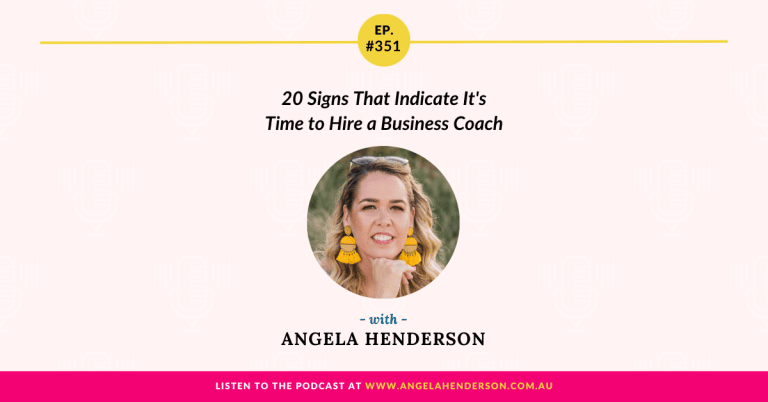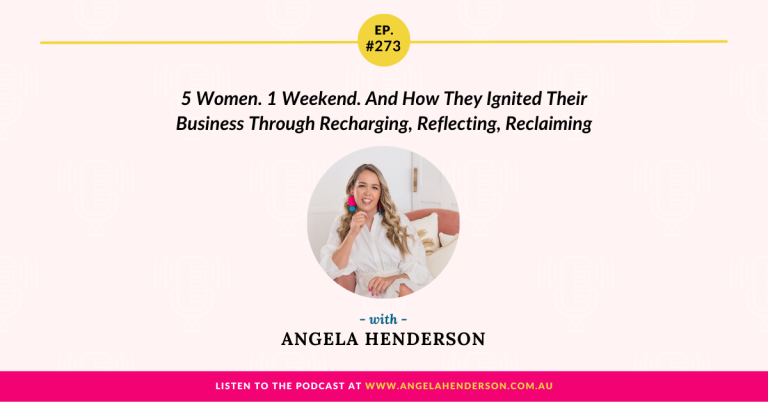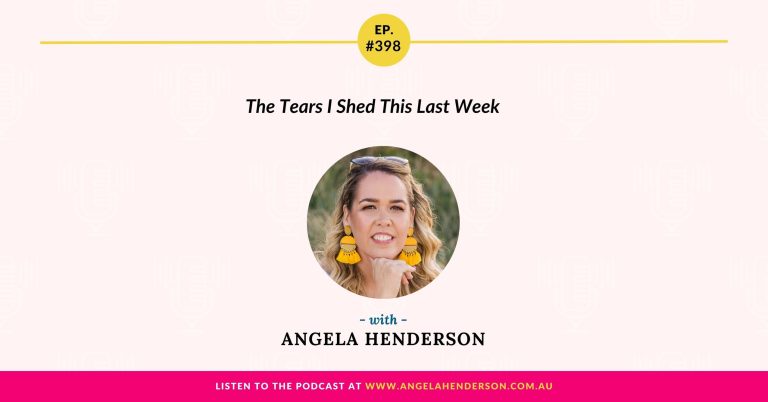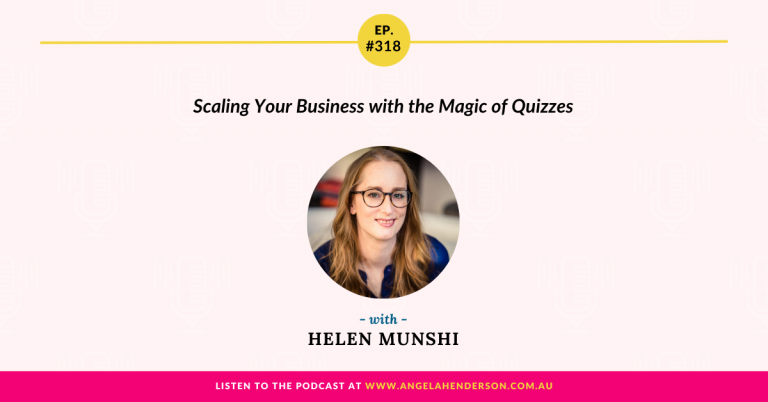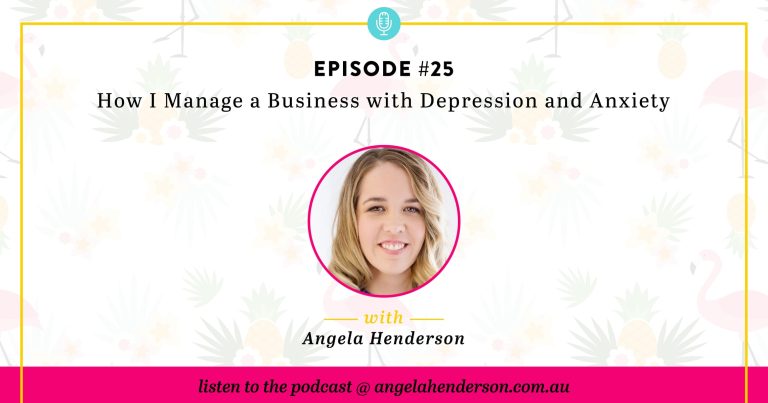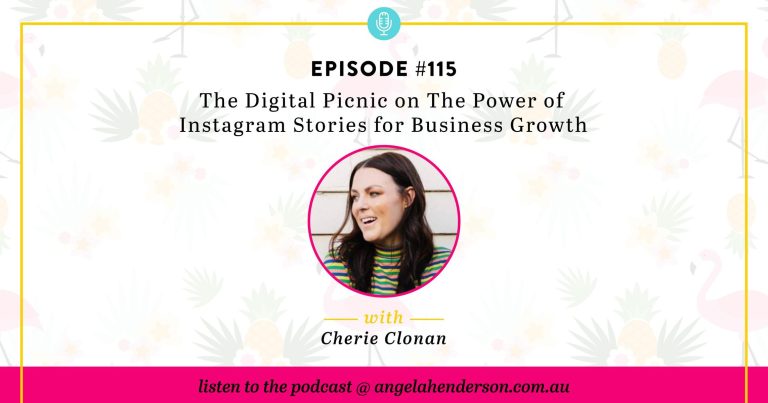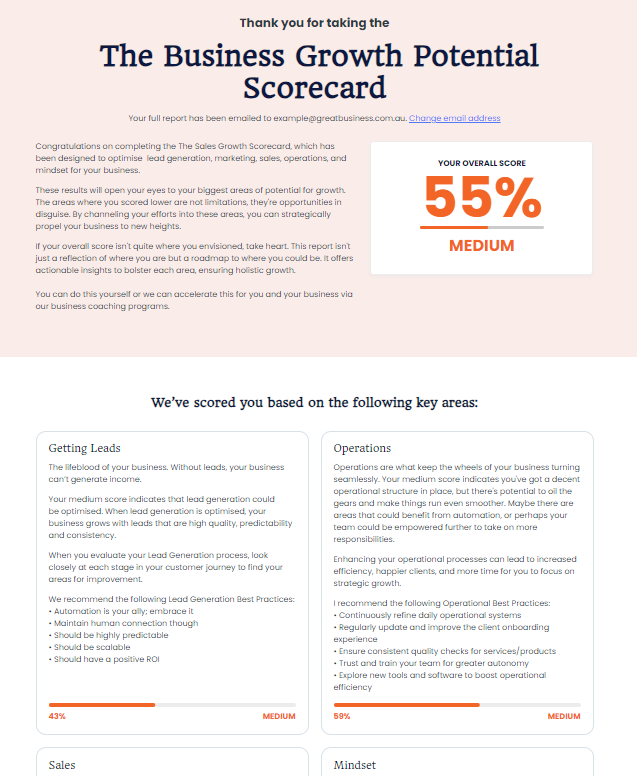“If you don’t know where to go, you won’t go anywhere.” This is the powerful message shared by Tina Tower in Episode 64 of the Business & Life Conversations Podcast. Tina is a high performance online business coach and speaker. And today, she’s going to share what she means by the quote above, how goals are intertwined with values and, most importantly, she breaks down the steps that businesses need to take to set their goals and move forward in the right direction with ease, clarity and strategy.
Important Links Mentioned in the Show:
Australian Business Collaborative Facebook Group
Finding Balance in Business Women’s Retreat
Angela Henderson Active Business Facebook Group
Angela Henderson Facebook Business Page
Prefer to read If You Don’t Know Where to Go, You Won’t Go Anywhere with Tina Tower? Here’s the transcript:
ANGELA:
You’re listening to the Business and Life Conversations Podcast with Angela Henderson, Episode 64.
Hey there, you’re listening to the Business and Life Conversations Podcast. My name is Angela Henderson and on this show, we talk about improving your business, life or both. By having amazing and rich conversations with brilliant guests who will inspire you and who will give you tips and tricks to help you grow both in life and in business.
Well, hey there and welcome back to another episode of the amazing Business and Life Conversations Podcast. I am your host, Angela, from Angela Henderson Consulting, where I am a Business Consultant helping women in business to develop the foundational framework and strategy they need to grow sustainable and profitable businesses.
Now, if you don’t know where to go, you won’t go anywhere. What a powerful statement or quote; depending on what you want to call it; this actually is. And I’m thrilled to have Tina Tower on the show today because we’re going to unpack what it really means when she says, ”If you don’t know where to go, you won’t go anywhere.” We’re also going to discuss why it’s so important for business owners to be able to identify their values and how this links to short and long-term goals. And we’re also going to break down what steps businesses can take in order to move from not knowing where to go to know where to go with ease, clarity and strategy.
But before we jump into this episode, I just want to let you know that this episode is sponsored by my new on-demand business class, The Ultimate 4-Step Framework for Creating a Sustainable and Profitable Business. In my 60-minute jam-packed Masterclass, you’re going to learn my signature four-step framework for creating a sustainable and profitable business without sacrificing time with your kids, without the overwhelm or without wasting more cash. We’re also going to discuss in the Masterclass the four big business mistakes that everyone in business makes and why they’re keeping you from growing that sustainable and profitable business. And lastly, in the Masterclass, I’m going to be talking with you about what is working for businesses now and why most of what you’re being taught about growing your business is outdated and wrong. To sign up for my on-demand Masterclass, you can head to http://bit.ly/masterclasswithangelahenderson. I will also include this link in the show notes so it’s a lot more readily accessible for you. But again, that link is bit.ly/masterclasswithangelahenderson.
Alright. Now let’s get into today’s episode. Welcome to the show, Tina.
TINA:
Thanks, Angela. Great to be here.
ANGELA:
Yes, I’m super excited to have you on the show today. And it is such a small world. We were just talking about this before we started recording that you never underestimate who knows who and how they’re connected. Because a good friend of mine, Elise, from What’s on 4, had asked me at lunch this one day, like, “Hey, do you want to come into this Brisbane workshop? There’s this lovely lady named Tina Tower.” And I was like, “Oh, yes. I’m in.” And then, it was like, “No, I’m not. Just kidding. I leave for Vietnam the following day.” And I wasn’t able to attend. But then, I was curious. I was like, “Well, who is this Tina person? She sounds really cool and fun.” And I kind of did a mini stalk. And then, I was like, “Oh my goodness. I’ve got to get her on the podcast.”
TINA:
You got to love the mini stalk.
ANGELA:
We all do mini stalk. People who don’t, I’m like, “Let me see your phone because you have mini stalked before anyone.” So yes, so I mini stalked you. And again, I’m very thankful that Elise was able to connect us. And she didn’t obviously “connect – connect” us. But she mentioned you and she raves about you at your Brisbane event. So I’m very grateful to have you on the podcast to share your wisdom to the listeners. So, yes. Thank you for that.
TINA:
Thank you.
ANGELA:
Now, my listeners; one thing that I always do with my listeners before we get into the actual episode is I like to ask my guest a fun question. And I know, for you, you’ve just come back from nine months of travelling. I believe it’s 28 different countries. So my question to you so the audience can start to get to know you a little bit better is out of those 28 countries you’ve been to in the last nine months with your family, what was your favourite country and why?
TINA:
Oh, that is the most impossible question to answer. I get asked that all the time. “What was your favourite country?” And I can’t. I can’t. I really think I should have one because we get asked the question all the time. But I have like five; so for different reasons. I guess my favourite; yes, I don’t know. I loved Croatia was amazing. So that was amazing because we went on this yacht; so we’ve got a sailing boat, a catamaran and we went on that and I ticked off one of the things I wanted to do when we were away was three months; 90 days with zero digital. So no social media, no emails, no nothing, which was a massive undertaking because, like many people, I was addicted to Instagram.
ANGELA:
Yes.
TINA:
We got on this boat and I just had no phone. And so, we could just immerse in the sunsets and swimming and it was just the most beautiful kind of break. And it looked like a postcard wherever you look. So I loved that. And then, I loved Kenya. Kenya; we went and stayed in a conservancy. So we saw the last two northern white rhinos.
ANGELA:
Wow.
TINA:
And all of the amazing things that you get from an African trip was so good. And then, Finland was really awesome for me because I’d never been in that environment before where it’s dark all the time. We saw the Aurora Borealis and we slept in glass igloos. And I mean I could talk for the next 5 hours.
ANGELA:
Alright. So you’d go Croatia, Kenya, kind of Finland. But again, like you said, each for their own individual characteristics.
TINA:
Yes. Because we’ve spent five weeks in Italy and Morocco. We just went to the most amazing places. So when you do that much all condensed, there’s kind of; it’s just, it’s all good.
ANGELA:
It’s all good. Exactly. I guess, I, too, love to travel. It is one of the things that I think it fills the soul. It fills your heart. There’s an essence of happiness. I think it also; your radar for gratefulness also increases, I think, substantially and makes you really aware about; you can bitch and moan about XYZ, but really, life isn’t that bad in our first world country. But also, I think, what do you feel are some of the lessons that you gain from nine months of travel? And how do think that this maybe has sparked or not sparked you to live the life that you want in so in your own way, I guess?
TINA:
Yes. I mean, it was a real turning point for us. So I started my business when I was 20. And so, I’ve been working pretty solidly until that point. I never really took a break when my children were born or anything like that. So for us, it was a real line in a sand to go. I sold my larger company in 2016. So that was kind of the opportunity for us to have this kind of midlife break before we started on the next chapter. So in terms of; I mean, I started online courses while I was doing that. So just the lessons to be able; I think I used to hear it and go, “Is it really like that? Are they all talk? Is that really possible?” And in doing it and going, “Gosh. This is such an amazing life to be able to work and travel and be anywhere.” And then, with the kids as well. It was just spectacular.
ANGELA:
A double win. And do you think, from a business perspective, was your business already kind of functioning from a point where you could go and do this? Or do you feel like you’re going to shift your business model now that you’ve gone; like kind of seem like it was on the first end. Now you’ve gone and then you come back? Like, are there any big shifts you think will happen? Or do you think that now you’re pretty much are still doing what you were doing before you left?
TINA:
Yes, so mine; a little bit different in that, I kind of developed that while we were travelling. So before, I ran primary tutoring centres. So I had over 30 franchises throughout the country. And then, we sold that a few years ago. And then, so after I sold it, I kind of; I had no idea what I was going to do next. I’ve kind of have that moment where I was really defined by my business was my identity. And I remember I left in the February. And in the March, I went to South by Southwest, the most awesome company in the world. And the first thing everyone does when you go to a conference is go, “Who are you? What do you do?”
ANGELA:
Yes.
TINA:
And I felt like crying because I don’t know who I am anymore without this. I didn’t know how to answer the question, “What do you do?” And so, I started like four or five businesses that year. Just every idea that I had, I thought, “Yes, I’ll give that a go.” I tried a clothing company; a jewellery brand. Like, all of these different random things. And then, when we were travelling, I didn’t want a complete switch off because it was kind of a bit too drastic for me.
ANGELA:
Like, this is too much. I can’t just cut the leg off. Yes.
TINA:
Yes. So I thought because of what I’d done, a lot of people were asking for coaching. So I thought, “Yes, I’ll just do that online while we travel.” So one day a week, I logged on at Zoom and I did my coaching sessions. And then, because I’d started that, and then we’re getting; like with private coaching, you get so many of the same questions over and over again.
ANGELA:
Yes.
TINA:
And so I was like, “Well, why don’t I make this a program online.” And then, people that can’t afford the private coaching can do the online group stuff and get like 80% of the value out of that. And so, I started that. But then, the people that were in the coaching program for service-based businesses were going, “Well, hang on. I want to add an online course to my service-based business as well.” And so, then I made an online course with how to make an online course.
ANGELA:
Yes.
TINA:
And so, we didn’t launch that. Like, I launched that while we were in Thailand; so about three or four months into the trip. And then, so now that we’ve come back, it’s kind of just blown up from there. And so, it was never really my intention to make this my career but I’ve never had so much fun in business. And this is me now.
ANGELA:
Fantastic. And again, sometimes, like we were talking earlier; things just happen. Sometimes, there are no plans and sometimes there are. But sometimes, the best things, I know Emma Isaac, Business Chicks; I love her book, Winging It, because I think it really is the essence sometimes that entrepreneurial spirit is that sometimes you just wing it and then it just works out.
TINA:
And just being open to the opportunity as well.
ANGELA:
Yes. And that thing ever has to be sudden stoned; you can always continue to make choices every day on how you want to live your life.
TINA:
Yes.
ANGELA:
So listen; so travel; tick. You definitely got that under control. And if we look back though into your business and entrepreneurial journey; I mean, like you said, you’ve been doing; you started business when you were 20.
TINA:
Yes.
ANGELA:
Your biggest business, I think, in 2016. And so, from those businesses, and then, now you’ve got, obviously, tinatower.com that you’re going with. And you’ve got your online courses, your one-to-one coaching. But for the essence of today’s particular topic that I really want to hone in on; is when I was doing some research obviously as I do with all my podcast guests, there was something that really struck me. And that’s what I really want to dive a little bit deeper about with you today. And that is, you said, “If you don’t know where to go, you won’t go anywhere.”
I thought, “This is very true.” Because as I know, as you probably talk about on your own podcast or with clients, etc. is that business owners often get stuck. And that they truly don’t know where to go. And it’s something that a lot of times, can almost be like a state of paralysis. It can be quite detrimental. It can hold back them from achieving their hopes and their dreams. So I just want to know, for the purposes of us kind of digging into the podcast today; so we’re all kind of thinking the same things, can you tell me what it means for you when you say, “If you don’t know where to go, you won’t go anywhere.” What does that mean for you?
TINA:
Yes. So, I mean, I’ve always had a big game plan. So it’s kind of contradictory to what we just said but it kind of goes in same thing in that; there’s a certain element of being open to opportunity and where life is going to direct you.
ANGELA:
Sure.
TINA:
But with everything, I think; so I’ve always had plans. I’ve always had 10-year plans, 5-year plans, broken into 1-year plans, broken into 90-day actions steps. And then, everything is meticulously planned out. But in planning that, it doesn’t mean they can’t change. So I’ve always found that I perform better with a plan. And most people do. But you can ebb and flow them as kind of the season changes and that goes. And what it means by having that game plan all mapped out is you’ll get far, far further than if you had no plan at all and you were just kind of seeing where life took you. And then wake up ten years later and go, “Oh my gosh. Why is my life so shit?”
ANGELA:
Yes. Seriously. And listen, I do think again, as I was talking about Emma Isaac because I think Emma clearly would have multiple strategies in place. But at some stage and she was just like, yes, even regardless of her strategy, she just had to follow her gut. Follow that, like we’re just going to go in there. And we’re just going to wing it and see what happens.
TINA:
Yes. And a lot about; I know Emma’s point is doing things before you feel 100% ready…
ANGELA:
Yes.
TINA:
…To do as well and being able just to go, “Well, you know what? I’m not 100% sure on that but I’m just going to wing it and I know I’m going to trust myself to do really well.”
ANGELA:
Trust that life will work out. It will be okay. You just take action, little bit by little bit. That’s written on these goals. And when you talk about though the goals; how much of the goals weave into people’s core values? Or do you think, is it separate? Do you think it’s a combination? Like, what are your thoughts about that?
TINA:
Totally intertwined. Totally intertwined. Because I think when people make goals that aren’t tied into their values, you’re never going to reach them because any obstacle that comes up will deter you from reaching that goal. Because we always have; I always laugh at how people will often have the same goals written on their list. So when I talk to people, it’s usually, “I’ll lose five kilos this year or ten kilos.” It’s usually, “I’ll make a million dollars in my business.” Like, it’s all these goals that you think, “Hang on. Is that really your goal?” Or is that a goal that you think that you should have and when you write it down and work out, what are the values you want to live by and what sort of lifestyle is important you? Right down to how much time you want to spend with family? How much time do you want to spend with your partner? With your kids? With exercising? With free time? Like all of those sort of things. And then what sort of business are you going to be able to design that’s going to help deliver that life to you rather than the other way around.
ANGELA:
And so what you are saying is also then, obviously, the goals intertwined with the values. Are you connecting those to kind of the seven key areas of life?
TINA:
Yes. So the way I work. Well, I’ve kind of; I’ve added an extra one now. So those areas that I work around, their kind of; like you’ve got around family, health, work purpose, mental purpose that isn’t necessarily linked to your job but something that stimulates for you. Money, spirituality, friends, and I’ve added in time recently there as well to make the 8 because I found that that’s such a big determining factor in our people spending their time the way that they wanted and strictly as well.
I was having a conversation; this is really a simple example this morning; with one of my clients who, she’s trying to challenge herself to start writing more articles. And it’s something that she’s really scared to be published and put out there and do all of that sort of thing. And so, she spent an entire day on trying to write this one article. Whereas if you started a countdown timer where you had to have it done in 60 minutes or even 30 minutes, like that’s; it’s done. It’s done in that time. And so, we need to have goals around how we spend our time so that we have more freedom to spend time in more enjoyable ways.
ANGELA:
And do you think that; I don’t know; different countries, time looks different to other people, do you think? Like, just so like people are spending their times. So I guess what I’m saying is sometimes I think people think we have endless amounts of time, right? Like for example, that client that you were just talking about. Like, it took her hours, right? To do it. Whereas, in other cultures, because we do; we’ve got food taken care of, our cars taken care of. Now, this is like a generalization, right? Not everyone has this. But let’s just say you’ve got food, a roof over your head, electricity; those basic needs. Whereas we can kind of dilly dally around. Whereas if we look at someone at the third world country in Kenya, where they’re like, “Shit man. We don’t get the water by day here or by night time. We are going to get eaten by freaking lions, potentially.” Right? Like, do you think the way we look at time in different countries also impacts our overall goals and achievements?
TINA:
Yes. Absolutely. Yes.
ANGELA:
Yes. And for you, if people out there are obviously, yes, you don’t know what you don’t know, you don’t know where to start type thing; what are some of the steps for people who are like, “Yes, okay. This is really basic. I probably don’t have a really tight goal. I don’t know what to look for. I probably haven’t really tapped into those 8 key areas of life.” And then they start to get overwhelmed. Like, “You know what? I’m probably just not going to do anything.” But we don’t want them to do that.
So what are some simple steps for those businesses out there that might be feeling overwhelmed, super stuck? Maybe they’re not spending any time with their family or they’re not looking at time is necessary. What are some of the steps that businesses need to take in order to really move from not knowing where to go to, to knowing where to go with ease, clarity and strategy?
TINA:
Well, I think, I mean, it’s so much dependent on the individual, which is what makes that question really hard. But, I mean, if you’re looking at it where you’re listening right now and going, “Where can I start?” Because at the moment, you wake up every day and you’re kind of like, “You know what? This isn’t my ideal life. This isn’t my ideal business. How can I change that?” And often, it’s having the courage to change is one of the biggest hurdles because we’re so tied into our identity and we don’t want to shift too far from something that’s going to be in contrast to how we identify ourselves. But the best thing is really to sit down and work out what do you want your life to actually look like? So, sometimes it’s not a quick fix.
So, for example, when I built my franchise company, my goal was always to have 100 centres. I wanted to have 100 centres around the country and then branching internationally. But once it got to kind of 25/30 was when I started to realize, “Hang on a minute, what this looks like from my day to day life; this isn’t what I thought it was going to be and this isn’t bringing me joy anymore. How am I going to change?” But when you’re in that situation, it’s not like you can wake up the next day and just go, “I’m just going to walk away.” There’s a lot to be said for how you do that. And so, that was kind of a really long process.
And a lot of the time, people feel really trapped in something because it’s not an easy solution. And that’s okay if it’s going to take a long time. The first thing is to work out what do you actually want life to look like and not for the rest of your life but for that next season. And then, what sort of things do you need to change and put in place to actually inch you closer to that. And often, it’s the tiny little things. It’s being able to go; what are you going to do consistently, day after day, rather than the one big massive thing.
ANGELA:
And I think often, too, is that particularly, because my cohort is women in business; is that we often forget to give ourselves permission that it’s okay to pivot.
TINA:
Yes.
ANGELA:
It’s okay to take a detour from the original plan that we had without that guilt of…
TINA:
That’s what I see on Instagram all the time, “I will never quit,” and that sort of thing. And the feeling of people hold a lot of shame if they say they’re going to do something and then they change their mind and don’t want to do it anymore is it’s that shame around quitting. But sometimes, the best thing you can do is to quit and find a new dream.
ANGELA:
And again, that it’s okay. It doesn’t mean that you’re a failure. It just; it may not been your cup of tea. It may not have been. But I also see businesses get in a really bad financial situation where they continue to basically push it up a hill and keep pushing. And then I see marital breakdown happen. Like, the whole ripple effect, right? So I agree that sometimes it’s okay. Just give yourself permission. Pivot. Change. But again, what you’re saying now is that if you’re kind of in that space right now, go back and really ask yourself what is it that you actually want to do or what is it that you want your life to look like. Because I do think…
TINA:
Because it does change with seasons, too. Like I think, I made my life plan when I was 16. But what I wanted then, when I got married, when I was 21, was then, it changed again. And then, when I had kids, how I thought I was going to be and then what I actually wanted when I had those babies in front of me was then very different again. And now that they’re growing up; my kids are now 9 and 11, but it’s a very different way. I can work now and opportunities that I can say yes to that was very different favourite five years ago. So it’s being able to adapt to these seasons as well and knowing that all is going to pass. And just to make it right for that time.
ANGELA:
And I think again, that goes back to something that we’re talking about before we pressed record, was that you had planned on travelling for a much longer time. I think it was your eldest son that you were talking about. It was like, “Listen, Mom, Dad. I’m missing my friends. I’m missing my family.” And then, you had to pivot, right? You were like, “Okay, we’re going to make it work. This isn’t like, we have dreams of buying things in Costa Rica,” I think you were talking about…
TINA:
Yes, I thought we’re going to have a [inaudible 21:16] in Costa Rica but now we are living in an ordinary suburban life again.
ANGELA:
Again, though, that’s okay though, right? Like it doesn’t mean that you and your family failed because you came home early. It just means that that just how it went.
TINA:
Completely.
ANGELA:
Yes. So for those, so if they look at and they go, “Yes. What do I want to actually have in my life to make a change? What do I need to get there?” Also, I guess, what do you think is one of the; do you think it’s better for businesses to have; you talk about 10-year plans and 5-year plans. And so, I’m curious to know a little bit more about when you think about plans. Because sometimes, for me when I’m working with some of my women in business, the overwhelm can already be so much, right? Because they’re juggling; Mom, freaking show for a cook, cleaner, everything else in between that looking at even like a quarter down the road can be a bit much for them, right? Six months, then you have five year.
So one of the things that I like is to just try and chunk it with my clients and look at what’s achievable and how can we do this to decrease the overwhelm. What are your thoughts about like how far are events do you think people should be going? And obviously, that can be very individualized based on person and need and business. But collectively speaking, a lot of the listeners out there are women in business who are juggling many hats and it can be quite daunting. And then, they don’t do anything, right? So I really want them to walk away. Like you said, just do one thing today. So what would that one thing that you would want them to do really, really be?
TINA:
Well, let’s shoot higher than one thing. Let’s do ten.
ANGELA:
Okay. Ten. We’re good.
TINA:
We can do more than that. But I think it’s a combination of being both big-picture thinker and really granular. And you’ve got to be able to do both. So when people will identify and go, “You know, I’m a details person or I’m a big-picture thinker.” But if you really want to win at the business game, you’ve got to be able to do both. And so, I’m a big believer in that overwhelm comes from lack of a plan. Because when you look at something; a goal, for example, like say, like I’ll take the million-dollar business that a lot of people say they want to have. So say, you look at that and go, “Okay. How much work would I have to do for that?” If you don’t actually make a granular plan for that, it’s super overwhelming. Because you look at where you are now and where you want to be and it’s so disjointed. And you don’t know the pathway how you’re going to get there. And so, that is overwhelming.
But if you work from completion backwards and go, “Okay. To make a million dollars a year in business, this is how much I have to sell. This is how many people I have to serve.” And then, you break that into how long is that going to take? And then, you break that into, “Okay. If I want to have that many people that I’m going to serve, how much time is it going to take me? How much team members will I need to support me in doing that? What marketing will I need to be able to do?” Because if you’re planning out your key metrics; how many leads you need to generate that amount of customers? So if you work kind of completion backwards, into all of the areas and work out, “Okay. What team? What marketing? What finances? What technology?” All of that stuff that you need to have. And then work out when that’s going to be; because that’s the other source of overwhelm is people will kind of do a completion backwards plan and look at everything they have to do. But they have the feeling of, “Okay. I have to do all of that now.”
ANGELA:
Now.
TINA:
Which is completely overwhelming. But it’s being able to then, kind of; the way I do it is I then get your yearly planned out and go kind of it’s one focus per month. So one month might be coming up with your new social media strategy and then new templates that you’re going to use, and that’s enough for that month. Because if you move yourself forward, every single month getting closer to that…
ANGELA:
Yes.
TINA:
…It’s amazing how much progress happens. But what a lot of people do is they get way too overwhelmed by the enormity of the goal. And so, months passed and their progress has been made.
ANGELA:
Yes. And it’s almost like that, again, that paralysis, “Okay, I’ll just pretend,” like I’m stuck, right? “I’m just not going to do anything because it’s like too much.”
TINA:
Yes.
ANGELA:
I do agree with you. I know when I work with my own coaching clients, one of the things; it’s funny because when I talk to about my one-to-one coaching, it’s two hours per month, right? And it’s at Zoom etc. etc. And they’re like, “We can’t possibly achieve nothing in two hours.
TINA:
It’s amazing how much you can do in that time.
ANGELA:
And I was like, “I guarantee you on my children’s life, there has never been a client completely tick everything off that box,” because their kids get sick, whatever; there’s circumstances that happen. I was like, “I promise you, we will be moving you forward every single month.” But they’re like, “No. But it’s only two hours.” And so I think again, in our society, we have come to this that you have to hustle. You have to be working hard and I completely disagree with this. And I think it is adding to people’s level of burnout. And actually, I could talk about that for a whole another episode, where I’m like, again if you actually go, there’s 30 days in a month. Take away your weekends to have some fun etc. And I’m like, “If you did one task every day, with your family, in your home, and do all that you; you will still be progressing.”
TINA:
Yes.
ANGELA:
So I do find it interesting how in society, again, we’ve got this perception that you’re going to work so much harder and you’re going to be doing the million things. But the reality of it is that’s not the case.
TINA:
No. And it’s really easy to fall into. I mean, know, when I was in my 20s, like I had that complete belief in going, I used to buy into all of that; the kind of things that you say; like I hustle. Like, that was totally me. I was there willing to work harder than anybody else and I always thought when no one is looking, I’m there grinding away, day after day, for 12 hours a day. Like, it’s that that’s going to set me apart. And people will challenge me on that sometimes now, and go, “Well, do you actually think you would have built the business you did if you hadn’t have done that?” And I absolutely do because once I actually got over that and started working a lot less but a lot more purposeful, in that everything was a lot more planned out. And I set a lot of time limits on the task that I had to do. So I would get in there and there was no procrastination. There was no kind of wasting this time on where do I go next? What do I do next? It was just getting there; do it. Do it the best I can and then move on to the next thing without having to really figure out what is the next thing.
And so now, like it’s unbelievable. I mean, I do know it’s very different now. I run an online business. You run an online business. It’s very different to when I had a retail store and when I had tutoring centres. That was a very different model kind of how it works and you do have to put in the hours there. But I do think we don’t take enough brain space to really think through the process on what we’re doing and making sure that we are questioning whether we’re on the right track.
ANGELA:
I totally agree. And I think again because we don’t, again, “I don’t have time to do this. I don’t have time.” And these are things like I talk about in other podcast is a lot of my women; I say to them, “Book in one night to a hotel. Take your laptop. Eat good food. Sleep in. And I promise you, you will get more work done in that 24 hours than you will probably have in the last week.”
TINA:
Yes.
ANGELA:
They’re like, “No way. I’m just going to watch a movie.” Hand on heart. Every woman that has ever done that; some have called me crying; email me, going, “I’m sitting here crying.” Because you give; like it’s just, you’re in a different creative space. You’re this. But they’ve given themselves permission to actually, again, nurture themselves and self-care. But equally, also, just have that time and that capacity to look at the bigger picture. So again, being able to work on your business versus in it. And I think that’s a whole another, again, I’ve talked about that in another episode. Whereas I think, too many times, we’re in that nitty-gritty.
But also know, I was interviewed for a podcast last week and one of the questions that they talked about or they said; well, pretty much is because I’m a service-based business, I’ve got the opportunity to travel and live for the moment. And I said, “Actually, I did the same thing with Finlee and Me, an e-commerce platform.” And she said, “Well, what do you mean?” And I said, “It comes down again to choice.” Right? Because I knew, if I was going on a holiday that I would need to either train people before the holiday or after the holiday, but everything is still manageable. I said, “At one stage, we had a third party logistics that was in there.” That was a disaster; that’s a whole another podcast, also. But there are ways to do it if you really want to do it, right?
TINA:
Knowing the sort of life that you want to lead.
ANGELA:
Exactly right. It goes back to what is it and that why and really unpeeling I guess those onion layers to really determine what is it. Because a lot of people say, “Yes. I want more money.” But that’s kind of the external factors. What’s the internal factors that are really going to drive you to get you rocking and rolling?
TINA:
And money comes when you’re living the life that you enjoy as well.
ANGELA:
It is. Every client I see who stops worrying about the money component side of things or where the next dollar’s coming and they can kind of relinquish that. Yes, the growth really does come from that.
TINA:
Yes.
ANGELA:
Now, again, not to say, “That’s fine. How do I feed my family?” I’m not saying that you still a little bit. But again, you’ve got to trust the process sometimes. And sometimes, we don’t trust the process.
Now, for those of you who are out there listening and they would love to get to know more about you, Tina, where can they find you? What adventures do you have coming up that they can follow you and mini stalk you because you have a wealth of knowledge? How can they connect with you?
TINA:
I mean, sound so wanky, but you can Google me and find me. But tinatower.com. I mean, on the time things, so I know, just after this podcast episode will come out, I’m releasing my first book.
ANGELA:
Fantastic.
TINA:
So I’m looping back so giving yourself the time to do things. So I know that it’s impossible for me. I’ve heard writers that can sit down and grab 30 minutes when they have it available at a cafe or something like that. But I’ve got to really immerse and get into that sort of brainwave kind of thing to be able to do it. And so, I’m going to Fiji for 8 days just to write.
ANGELA:
Fantastic.
TINA:
I never feel; when I said that to someone recently, the first response that a woman gave me was, “Don’t you feel really guilty in leaving your family to do that?” I’m like, “No. Because my family have a great life because of the work that I do.” And so, no, I don’t feel guilty about that at all because it enables you to be able to do it. And so you’ve got to really know what you want and be able to get it. Because if you don’t know what you want, you’ll never get it. So a lot of it is identifying that.
But yes. So you can find me at tinatower.com more. Or on Instagram, you can message me. And then please, look up the book when it comes out as well.
ANGELA:
Fantastic. And again, let me know when the book is live because I’d be happy to promote that also for you, Tina.
And for the rest of you, for those listeners that are wanting to get the transcriptions for this, just remember that my team and I will be putting the full transcription together at angelahenderson.com.au. And of course, I cover all sorts of related business and life topics inside my very active Facebook community, The Australian Business Collaborative. So make sure to head over there. We’re about to hit 6,000 members, which is just super exciting. And for the rest of you, I hope you have a fabulous day. And I look forward to having you join me again next week on another amazing episode of the Business and Life Conversations Podcast.
Have an awesome day everyone. And thanks again, Tina, for being on today.
TINA:
Thank you.
ANGELA:
Thanks for listening to the Business and Life Conversations Podcast with Angela Henderson, Tina Tower. www.angelahenderson.com.au
